This article was co-authored by Anne Dunev, PhD, NP, ACN. Anne Dunev is a certified Clinical Nutritionist, Naturopathic Practitioner, and Owner of Well Body Clinic, a wellness clinic in Los Angeles, California. With over 25 years of experience, Anne specializes in herbal medicine, functional medicine, women's health, hormonal balance, and digestion. Anne holds a BS in Health Sciences from Ohio State University and a PhD in Natural Medicine. Furthermore, Anne holds a post-doctorate certification in Applied Clinical Nutrition for the Southern California University of Health Sciences. She has taught clinical nutrition, kinesiology, and soft tissue manipulation at the College of Naturopathic Medicine in London, UK. She has been a featured speaker at the International Wellness Festivals in Sun Valley, Idaho and St. Hill, UK. Anne has also been a guest on over 150 radio and television programs. She is the author of the weight-loss book called, “The Fat Fix Diet”.
wikiHow marks an article as reader-approved once it receives enough positive feedback. This article received 11 testimonials and 100% of readers who voted found it helpful, earning it our reader-approved status.
This article has been viewed 231,274 times.
Calcium is an important nutrient that helps your body maintain healthy bones. If you don't think you are getting enough calcium from your diet, you may want to take a supplement to make up the difference. However, your body does absorb calcium better from food than from supplements, so you want to do everything you can to make sure you are getting as much calcium from your supplement as possible.
Steps
Increasing Calcium Absorption Rates
-
1Increase your magnesium intake. Magnesium helps your body take in the calcium. In addition, it also contributes to building healthy bones. Make sure you are getting enough magnesium in your daily diet to help absorb the calcium supplements you're taking.[1]
- To increase your magnesium, eat whole grains, vegetables such as summer squash, green beans, broccoli, cucumbers, and spinach, and nuts and seeds.[2]
- Adult women under 30 need 310 milligrams a day, while women over 30 need 320 milligrams. Men need 400 milligrams before 30 and 420 milligrams after 30. An ounce of almonds has 80 milligrams of magnesium.[3]
-
2Take multiple smaller doses of calcium. If your supplement needs are greater than 500 milligrams per day after accounting for the calcium consumed in your diet, split up your supplement. Your body is only able to process up to 500 milligram at a time.[4]
- Taking more calcium than you need can be dangerous. It increases your chance of having kidney stones and may also contribute to problems with your heart.[5]
- Preteens and teenagers (ages 9 to 18) need 1,300mg of calcium per day.
Advertisement -
3Eat enough vitamin D, or take a supplement that adds it. Vitamin D also contributes to absorbing calcium into your system. Because of this relationship, most milk has added vitamin D to help you take in the calcium.[6]
- Many dairy products, such as butter, cheese, and milk have vitamin D. Fortified cereals and fish are also good sources of this vitamin.[7]
- For adults under 70 years of age, 600 international units of vitamin D per day is sufficient. Adults over 70 should consume 800 international units. To get your recommended intake, 3 ounces of swordfish has 566 international units, while a cup of milk has 115 to 124 international units per serving.[8]
-
4Take calcium carbonate with food. This type of calcium, which is readily available, is best taken with food. It needs stomach acid to be absorbed properly, and the food activates your stomach acid.[9]
- Other types of calcium, such as calcium citrate, does not need to be taken with food. This type of calcium is usually more expensive than calcium carbonate. This type is especially good for people who have stomach issues, such as irritable bowel syndrome.[10]
-
5Separate your iron and calcium supplements by at least 2 hours. The same is true of your multivitamin if your multivitamin contains iron.
- Your body processes iron and calcium in much the same way, so taking them at the same time interferes with the body's ability to absorb both.
- The same rule applies to food and beverages consumed with both supplements. Calcium supplements should not be taken with foods high in iron, such as liver or spinach. Iron supplements should not be taken with calcium-rich products like a glass of milk.
-
6Avoid eating foods high in phytic and oxalic acids with your supplement. These acids can bind with calcium and keep it from being absorbed.[11] Many foods high in magnesium are also high in these acids. Therefore, while it's important to eat these foods to get the magnesium you need, you should avoid taking your supplement along with these foods.
- For instance, spinach, many nuts and seeds, rhubarb, sweet potatoes, beans, and collard greens are all high in phytic and oxalic acids. Whole grains and wheat are also high in these acids, but don't seem to affect calcium absorption as much as other foods in this category.[12]
-
7Don't drink excessively. Alcohol can decrease your body's absorption of calcium. On average, don't drink more than one drink a day if you're a woman and two drinks a day if you're a man.[13]
- "One drink" is the equivalent of 12 oz of beer, 5 oz of wine, or 1.5 oz of liquor.
Knowing How Much Calcium to Take
-
1Calculate the amount of calcium in your diet. To calculate the amount of calcium in your diet, you need to keep track of your food using a food journal. Basically, you write down everything you eat in a day, including the serving size. Then you can calculate the amount of calcium in the foods you ate.[14]
- For instance, a cup of yogurt has 415 milligrams of calcium. Therefore, if you ate a cup and a half over the course of a day, you consumed 622.5 milligrams of calcium just from yogurt.[15]
-
2Know how much you need. If you're not 50 yet, you need about 1,000 milligrams of calcium daily. If you're over 50, your need increases to 1,200 milligrams daily.[16]
- Limit intake to under 2,500 milligrams. While it's acceptable to take more than your daily minimum, you shouldn't get more than 2,500 milligrams of calcium between your diet and your supplements.[17]
-
3Talk to your doctor about whether you need a supplement. Your doctor can help you assess whether you need a supplement based on your diet. She can also recommend the right kind of calcium for you and can look at whether a calcium supplement will interact with any of your medications or cause adverse affects for you.
-
4Know your risk. Some people are more dependent on calcium. For instance, if you have osteoporosis or at high risk of developing it, you need to be more careful about getting the required amount of calcium every day, as it helps keep your bones healthy.[18]
Expert Q&A
Did you know you can get expert answers for this article?
Unlock expert answers by supporting wikiHow
-
QuestionWhat drinks help calcium absorption?
 Anne Dunev, PhD, NP, ACNAnne Dunev is a certified Clinical Nutritionist, Naturopathic Practitioner, and Owner of Well Body Clinic, a wellness clinic in Los Angeles, California. With over 25 years of experience, Anne specializes in herbal medicine, functional medicine, women's health, hormonal balance, and digestion. Anne holds a BS in Health Sciences from Ohio State University and a PhD in Natural Medicine. Furthermore, Anne holds a post-doctorate certification in Applied Clinical Nutrition for the Southern California University of Health Sciences. She has taught clinical nutrition, kinesiology, and soft tissue manipulation at the College of Naturopathic Medicine in London, UK. She has been a featured speaker at the International Wellness Festivals in Sun Valley, Idaho and St. Hill, UK. Anne has also been a guest on over 150 radio and television programs. She is the author of the weight-loss book called, “The Fat Fix Diet”.
Anne Dunev, PhD, NP, ACNAnne Dunev is a certified Clinical Nutritionist, Naturopathic Practitioner, and Owner of Well Body Clinic, a wellness clinic in Los Angeles, California. With over 25 years of experience, Anne specializes in herbal medicine, functional medicine, women's health, hormonal balance, and digestion. Anne holds a BS in Health Sciences from Ohio State University and a PhD in Natural Medicine. Furthermore, Anne holds a post-doctorate certification in Applied Clinical Nutrition for the Southern California University of Health Sciences. She has taught clinical nutrition, kinesiology, and soft tissue manipulation at the College of Naturopathic Medicine in London, UK. She has been a featured speaker at the International Wellness Festivals in Sun Valley, Idaho and St. Hill, UK. Anne has also been a guest on over 150 radio and television programs. She is the author of the weight-loss book called, “The Fat Fix Diet”.
Certified Nutritionist & Naturopathic Practitioner
-
QuestionWhat kind of calcium supplement should I use?
 Anne Dunev, PhD, NP, ACNAnne Dunev is a certified Clinical Nutritionist, Naturopathic Practitioner, and Owner of Well Body Clinic, a wellness clinic in Los Angeles, California. With over 25 years of experience, Anne specializes in herbal medicine, functional medicine, women's health, hormonal balance, and digestion. Anne holds a BS in Health Sciences from Ohio State University and a PhD in Natural Medicine. Furthermore, Anne holds a post-doctorate certification in Applied Clinical Nutrition for the Southern California University of Health Sciences. She has taught clinical nutrition, kinesiology, and soft tissue manipulation at the College of Naturopathic Medicine in London, UK. She has been a featured speaker at the International Wellness Festivals in Sun Valley, Idaho and St. Hill, UK. Anne has also been a guest on over 150 radio and television programs. She is the author of the weight-loss book called, “The Fat Fix Diet”.
Anne Dunev, PhD, NP, ACNAnne Dunev is a certified Clinical Nutritionist, Naturopathic Practitioner, and Owner of Well Body Clinic, a wellness clinic in Los Angeles, California. With over 25 years of experience, Anne specializes in herbal medicine, functional medicine, women's health, hormonal balance, and digestion. Anne holds a BS in Health Sciences from Ohio State University and a PhD in Natural Medicine. Furthermore, Anne holds a post-doctorate certification in Applied Clinical Nutrition for the Southern California University of Health Sciences. She has taught clinical nutrition, kinesiology, and soft tissue manipulation at the College of Naturopathic Medicine in London, UK. She has been a featured speaker at the International Wellness Festivals in Sun Valley, Idaho and St. Hill, UK. Anne has also been a guest on over 150 radio and television programs. She is the author of the weight-loss book called, “The Fat Fix Diet”.
Certified Nutritionist & Naturopathic Practitioner
-
QuestionWhat are the symptoms of a calcium deficiency?
 Claudia Carberry, RD, MSClaudia Carberry is a Registered Dietitian specializing in kidney transplants and counseling patients for weight loss at the University of Arkansas for Medical Sciences. She is a member of the Arkansas Academy of Nutrition and Dietetics. Claudia received her MS in Nutrition from the University of Tennessee Knoxville in 2010.
Claudia Carberry, RD, MSClaudia Carberry is a Registered Dietitian specializing in kidney transplants and counseling patients for weight loss at the University of Arkansas for Medical Sciences. She is a member of the Arkansas Academy of Nutrition and Dietetics. Claudia received her MS in Nutrition from the University of Tennessee Knoxville in 2010.
Master's Degree, Nutrition, University of Tennessee Knoxville Master's Degree, Nutrition, University of Tennessee KnoxvilleExpert Answer
Master's Degree, Nutrition, University of Tennessee KnoxvilleExpert Answer
Warnings
- If you have a thyroid dysfunction, calcium, iron, and magnesium supplements must be separated from your thyroid medication by at least 4 hours for optimal absorption.⧼thumbs_response⧽
- Some calcium supplements, particularly calcium carbonate, can cause bloating, gas, and constipation. If you find that's a problem for you, try switching to calcium citrate.[22]⧼thumbs_response⧽
References
- ↑ http://www.helpguide.org/articles/healthy-eating/calcium-and-your-bones.htm
- ↑ http://www.helpguide.org/articles/healthy-eating/calcium-and-your-bones.htm
- ↑ http://ods.od.nih.gov/factsheets/Magnesium-HealthProfessional/#h2
- ↑ http://www.arthritis.org/about-arthritis/types/osteoporosis/articles/calcium-supplements.php
- ↑ http://www.arthritis.org/about-arthritis/types/osteoporosis/articles/calcium-supplements.php
- ↑ http://www.helpguide.org/articles/healthy-eating/calcium-and-your-bones.htm
- ↑ http://www.helpguide.org/articles/healthy-eating/calcium-and-your-bones.htm
- ↑ http://ods.od.nih.gov/factsheets/VitaminD-HealthProfessional/#h2
- ↑ http://ods.od.nih.gov/factsheets/Calcium-HealthProfessional/
- ↑ http://ods.od.nih.gov/factsheets/Calcium-HealthProfessional/
- ↑ http://ods.od.nih.gov/factsheets/Calcium-HealthProfessional/
- ↑ http://ods.od.nih.gov/factsheets/Calcium-HealthProfessional/
- ↑ http://www.helpguide.org/articles/healthy-eating/calcium-and-your-bones.htm
- ↑ http://www.realsimple.com/health/nutrition-diet/healthy-eating/keep-food-journal
- ↑ http://ods.od.nih.gov/factsheets/Calcium-HealthProfessional/
- ↑ http://www.arthritis.org/about-arthritis/types/osteoporosis/articles/calcium-supplements.php
- ↑ http://www.arthritis.org/about-arthritis/types/osteoporosis/articles/calcium-supplements.php
- ↑ http://www.arthritis.org/about-arthritis/types/osteoporosis/articles/calcium-supplements.php
- ↑ http://www.helpguide.org/articles/healthy-eating/calcium-and-your-bones.htm
- ↑ http://www.helpguide.org/articles/healthy-eating/calcium-and-your-bones.htm
- ↑ http://www.helpguide.org/articles/healthy-eating/calcium-and-your-bones.htm
- ↑ http://ods.od.nih.gov/factsheets/Calcium-HealthProfessional/
About This Article
To best absorb calcium supplements, try eating more magnesium-rich foods like whole grains, squash, green beans, and nuts, which help your body absorb calcium. You should also eat foods high in vitamin D like cheese, milk, and broccoli to help you absorb the supplements. Keep in mind that your body is only able to process 500 milligrams of calcium at a time, so if you’re taking more than that, make sure to space your doses out throughout the day. If you’re not sure how much calcium you need in your diet, talk to your doctor to figure out what supplement dosage will be best for you. To learn how to avoid foods that stop calcium absorption, read more from our Medical co-author.

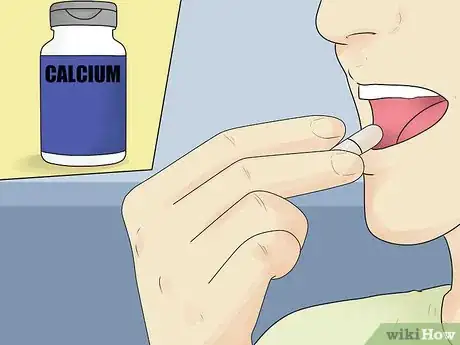


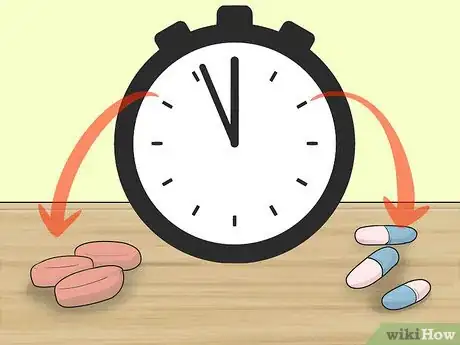
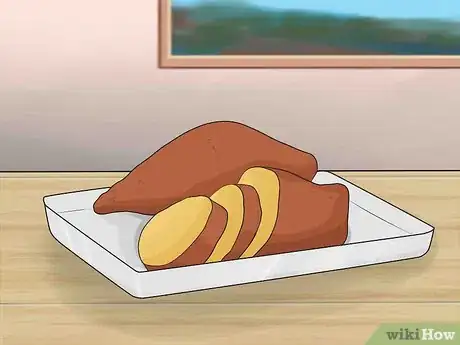




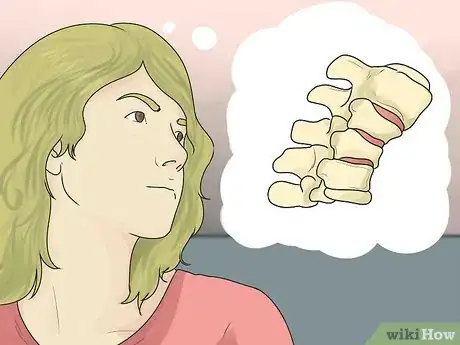

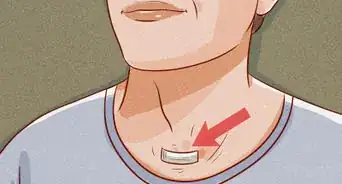












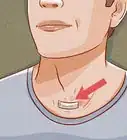
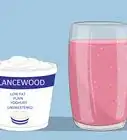



































Medical Disclaimer
The content of this article is not intended to be a substitute for professional medical advice, examination, diagnosis, or treatment. You should always contact your doctor or other qualified healthcare professional before starting, changing, or stopping any kind of health treatment.
Read More...